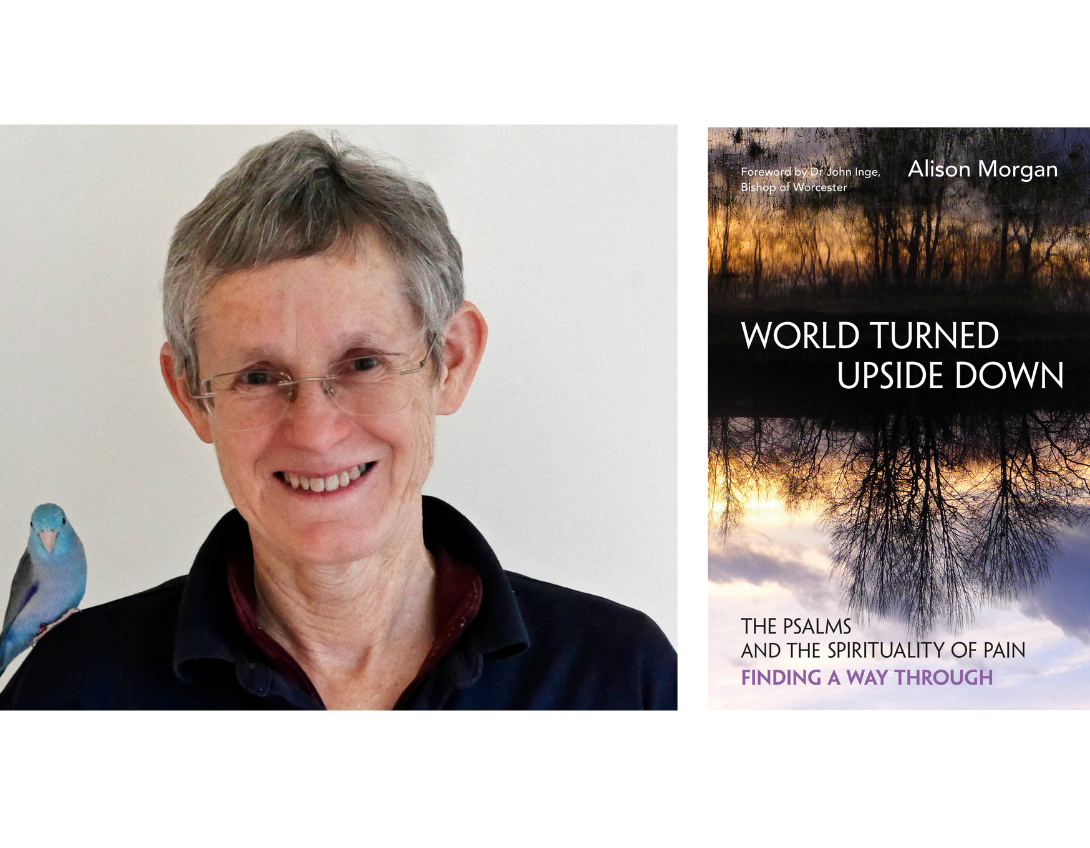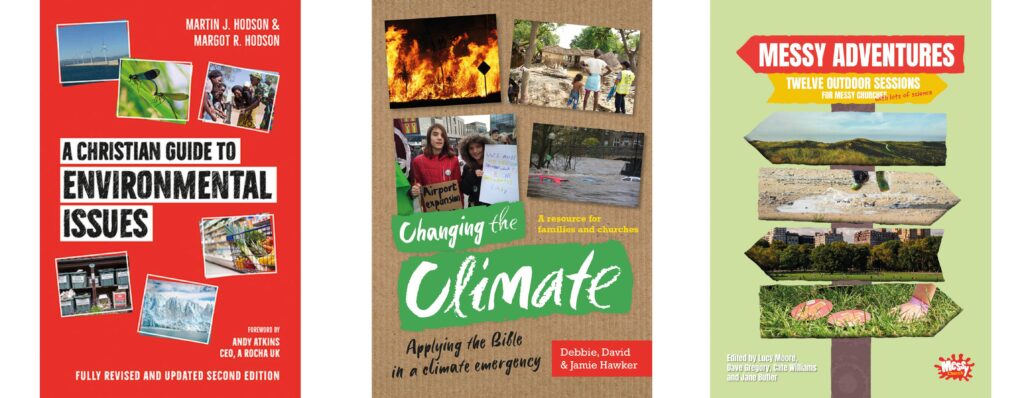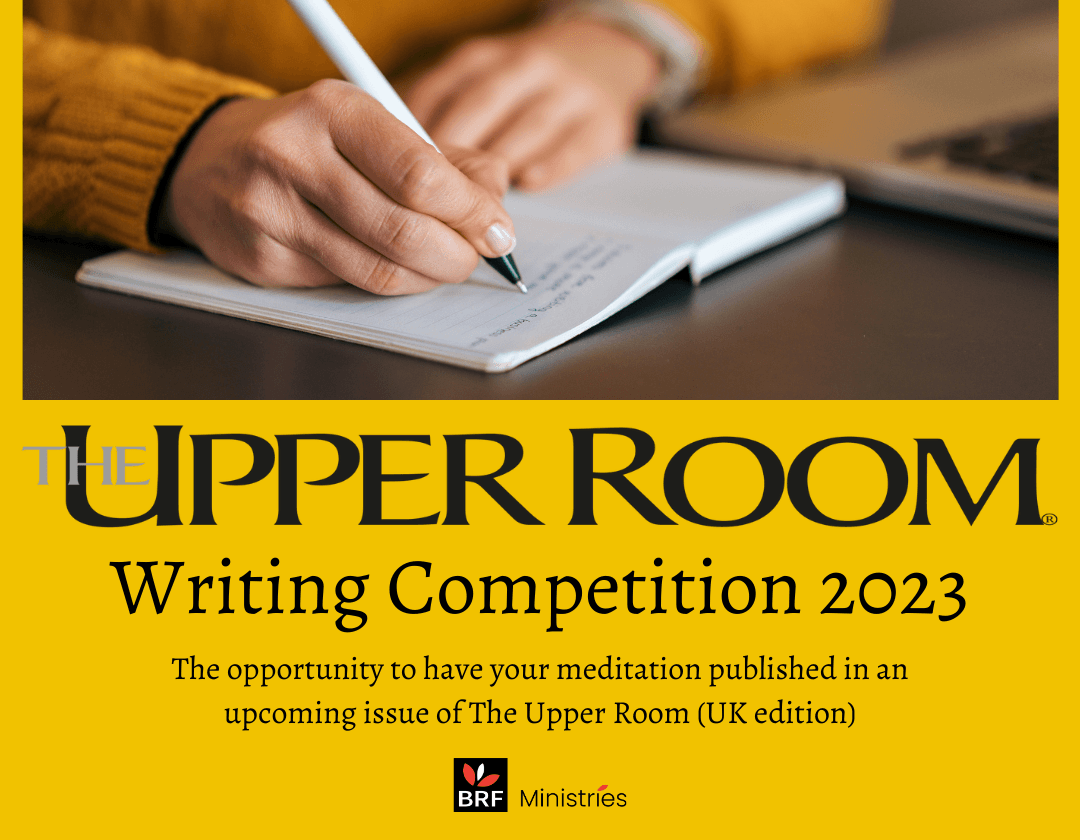Creationtide, or the season of creation, runs from 1 September to the feast day of St Francis of Assisi on 4 October. It’s a time when churches focus on our Christian responsibility to care for creation. In a specially written article, BRF author Alison Morgan explores that responsibility.
10 September 2023
Each September, the Christian family comes together to celebrate, pray for and protect the created world of which we are a part. We do this conscious of past failure, we do it with renewed attention to scripture, and we do it not just out of respect for the God who created the world, but because on its well-being depends our own.
In the beginning, God created the heavens and the earth, the land and the sea. He made fish and birds, animals and plants, man and woman. But God did not stop there. God continued to breathe life each day into every one of these creatures, sustaining and renewing that which he had made (Genesis 1; Psalm 104).
God, we realise, is a community – Father, Son and Holy Spirit. It is the Spirit who does the breathing; in Hebrew the same word is used for both breath and spirit. It’s the Son who comes to tell us what he and the Father have done – the Son through whom all things were made (John 1:1–3). And it’s the Son who invites us to join this community which is God: to rejoice in it, to be transformed by it, and to play our own part in its twin purposes of creation and redemption.
So how are we getting on with the creation part of that mandate? Not, it seems, very well. Global warming is now developing into global boiling. Fires and floods sweep the earth, sewage runs in our rivers, our seas are full of microplastics, unnatural pandemics afflict both people and birds, whole ecosystems are being destroyed, and we ourselves suffer along with the habitats and species God has taken such delight in. Things are, in fact, no longer good.
A fresh opportunity: to notice, name and care
But all is not lost: we are beginning to wake up to the fact that we have been invited not to exploit the created world, but to look after it. This month of care for creation, of Creationtide, provides us with a fresh opportunity to express our thanks and renew our commitment to care, with God, for the world that God has made: the world that is our home.
How do we do that, in practice? The task is daunting. Perhaps, reading on from the first chapter of Genesis to the second, we can identify three simple steps that we can take not just collectively but also individually. You might like to try them.
Step 1: Notice
When God had made the heavens and the earth he created trees, animals and birds, and he brought them to the man: Look, said God.
Genesis 2:19
Perhaps our first task is simply to look at what’s in front of us, to notice the astonishing diversity of the world that surrounds us. Climb Everest if you wish, for after all it’s there. But notice too the flowers poking their heads up between the cracks in the pavement, the wind rippling over a field of barley, the exuberant song of the tiny wren.
‘The universe unfolds in God, who fills it completely,’ Pope Francis points out; ‘there is a mystical meaning to be found in a leaf, in a mountain trail, in a dewdrop.’ ‘We have come to accept a heresy of aloofness, a humanist belief in human difference,’ laments landscape writer Robert McFarlane. And yet all is not lost, he says, for ‘there is something uncomplicatedly true in the sensation of laying hands upon sun-warmed rock, or watching a dense mutating flock of birds, or seeing snow fall irrefutably upon one’s upturned palm.’
Look, said God. If you do not notice the things I have made, you are not likely to notice me either (Romans 1:20). Caring starts with noticing.
Step 2: Name
Once God had drawn the man’s attention to the living things which surrounded him, he brought them one by one to him to see what he would call them; and whatever the man called every living creature, that was its name.
Genesis 2:19
How many birds, plants or insects can you name? I find that every time I learn to name one, my world expands. Yesterday I noticed a fern I’d never seen before, and discovered it’s called a royal fern. Not surprising, because it’s six feet high – and yet I’d walked past it dozens of times without seeing it. ‘When we know the names of living creatures,’ naturalist Stephen Moss suggests, ‘it helps us appreciate the diversity of the natural world; by giving linguistic labels to the multifarious wonders of life around us – by watching, seeing, focusing on and separating one organism from another – we are then better able to understand and appreciate the natural world in all its glorious variety and confusion.’
Obedient to God’s instructions, we have managed to name some two million species of living things so far – but it seems we have many millions still to go. If we can’t name them, we aren’t likely to be able to care for them.
Step 3: Care
God knew that the living things he planned to create would need a custodian. This is your world, said God to the man. I want you to work it and take care of it. Both of you.
Genesis 2:15, 18
Once we have noticed and named something, whether it be a fern or a landscape, we can start to look after it. The UK has led the race to the bottom by becoming one of the most nature-depleted countries in the world. While efforts are being made on a national scale to reverse this, we each have a part to play. I decided to start by looking afresh at our garden. When we moved here it was a marvel of low-maintenance sterility. No flowers, no insects, no birds; just evergreens and bark chipping. We’ve replaced the conifer hedge with hawthorn, maple and hornbeam; we’ve resown the lawn with a wildflower mix; we’ve provided bird feeders, insect habitats, a bat box and a hedgehog house. The garden is no bigger than a tennis court – but it’s now full of life. In summer we have woodpeckers and jackdaws, nesting blue tits, robins and wrens as well as bats and a hedgehog; in winter it’s starlings, hungry sparrowhawks and a constant stream of goldfinches, chaffinches and greenfinches. Every day, as God breathes life into these things yet again, I thank him for inviting me to help him sustain them.
It’s easy to make a wider contribution too. Local wildlife organisations always welcome volunteers – can you get involved with yours? For me it’s meant helping with the reintroduction of the huge, bugling common crane, and leading a ringing project to understand the needs of the great white egret, a species new to this country but going from strength to strength in our carefully restored reedbeds. For others it means joining in with censuses of dormice or butterflies, teaching children to pond-dip, or getting stuck in with practical habitat management.
The rewards of caring
Helping to care for creation in these practical ways brings both personal fulfilment and spiritual refreshment. That’s not a subjective assessment – study after study has shown that our physical, emotional and spiritual health is directly linked to our stewardship of the natural environment. The University of Exeter found that the more bird species we see each day, the better our mental health will be. The University of Kiel concluded that an additional ten percent of species in our locality increases our life satisfaction at least as much as a comparable increase in income.
Why is caring for creation so important? Because we are not separate from the created world, but part of it. Because it’s the way God designed us to live, as part of an integrated and healthy natural system, a system which depends on our active participation. Because Jesus draws our attention constantly to it, inviting us to learn from it and to model our own lives upon it. And last but not least, because on its wellbeing depends our own. The health of each one of us, whether we know it or not, depends on our capacity to notice, name and care for the things that God has made.
How can we best enjoy the living, breathing, glorious world that God has created for us, and partner with him in his daily task of sustaining it? That is the question God is asking of us all in this month of Creationtide. How will you answer?



